Dados do Trabalho
Título
Extraosseous Ewing Sarcoma in scalp: a case report
Apresentação do caso
Introduction: Extraosseous Ewing Sarcoma (EES) are rare tumors that involve soft tissues. They originate from bone marrow mesenchymal stem cells, characterized by the fusion of the EWS-FLI1 or EWS-ERG transcription genes. Clinical summary: adolescent, transgender patient, with a slowly growing mass in the occipital region (growth in 5 years), which worsened after 1 year of estrogen use. She developed headache and seizures, associated with tissue necrosis and local infection, at which point she was admitted to our service. On magnetic resonance imaging, an extensive extracranial parieto-occipital and bilateral posterior cervical expansive lesion was identified, with bone erosion and invasion of the dura mater. The definitive diagnosis was made by biopsy of the affected cervical lymph node. Therapeutic intervention: two cycles of topotecan and cyclophosphamide were carried out before diagnostic confirmation. Afterwards, chemotherapy was followed according to the South American Ewing Family Tumor Protocol, with surgical and radiotherapy local control programming.
Clinical outcome: patient undergoing neoadjuvant chemotherapy, with probable progression of oncological disease.
Discussão
Discussion: In the reported case, the patient presents an extra-osseous lesion in scalp extending to the dura mater and, despite absence of distant metastases, there are poor prognostic factors: large tumor size (> 8 cm or tumor volume > 150-200 mL), older age than 13 years old, male (biological sex) and poor histological response to induction chemotherapy. There appears to be a difference in the response and prognosis of patients with EES and skeletal Ewing Sarcoma (ESS), however the recommended multimodal treatment is the same with neoadjuvant and adjuvant chemotherapy, surgery and radiotherapy for local control.
Comentários Finais
Final: The low frequency of this entity explains the lack of data on optimal management, especially for relapsed and refractory patients.
Área
Tumores sólidos
Categoria
Categoria Médico
Autores
KARINA AMELIA MORIKAWA, BEATRIZ VALE FARKAS, LORENA OLIVEIRA, CAROLINA CARMARGO VINCE, GIORGIONE BATISTA LEITE, FERNANDA GOMES GONÇALVES
